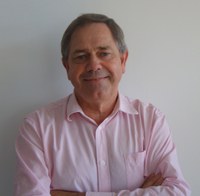Prof Xavier Philippe
Xavier Philippe is Professor of Public Law at the Law Faculty of the University Paris 1 Panthéon- Sorbonne (Sorbonne School of Law) and Extraordinary Professor at the University of the Western Cape (Cape Town-South Africa). He holds a State Doctorate in Law (1989) and two Master’s degrees in Public Law and Social and Health Law (1983-1984). He was appointed Professor in 1990 at the University of La Réunion (Indian Ocean) after having been lecturer and Senior Lecturer at the University of Aix-Marseilles (1985-1989). From 1995 until 2001, he was seconded to South Africa during the transition period as legal expert and academic at the University of the Western Cape (Cape Town – South Africa). He also worked on the Truth and reconciliation process and developed research in Transitional justice. He came back to Aix-en-Provence from 2002 until 2004 as Professor of Public Law. From 2004 until 2007, he was seconded again to the International Committee of the Red Cross as Regional Legal Advisor for the CIS countries (Moscow delegation). From 2008 to 2018, he was Professor at the University of Aix-Marseille (AMU) and headed the Louis Favoreu Institute and created a new Master Programme on the Law of State Rebuilding in Post-conflicts situations. In 2018, he was elected at the Sorbonne School of Law (University of Paris 1 Panthéon-Sorbonne) where he teaches and chairs the Sorbonne Institute of Legal and Philosophical Science (UMR CNRS 8103). He also heads the Master Program in Constitutional & Human Rights Law.
His main fields of expertise are Constitutional comparative Law (Drafting processes), Human Rights, International Humanitarian Law, International Criminal Law and Transitional justice. He also has been deeply implicated in constitutions rebuilding processes in post conflict or post crisis situations, especially in Tunisia and Myanmar, where he participated in national dialogue and constitution rebuilding processes. He is the co-founder and co-chair of the Francophone Association for Transitional Justice that became The Louis Joinet Institute.

